Health Secretary Under Fire For ‘Patronising’ Swipe At Striking Junior Doctors In BBC Interview
Health Secretary Victoria Atkins sparked a flurry of outrage on Thursday after referring to junior doctors as “doctors in training” in an apparent dig at the qualified medical professionals that are leading a 72-hour strike over pay.
Atkins appeared on BBC Breakfast to suggest the possibility of an improved pay and conditions offer on the second day of the strike. However, her choice of words did not sit well with many, perceived as a “patronising” swipe to demean the role of junior doctors.
After explaining that agreements had been met with consultant doctors and specialist medical professionals, she said: “The last cohort is junior doctors – or doctors in training, as I prefer to call them – and they, sadly to my great disappointment, walked out of our negotiations and then called these strikes.”
Junior doctors are considered qualified, having completed a medical degree a junior doctor may have up to nine years of clinical experience and regularly are the most senior staff member on a ward in hospitals.
Backlash was quick, as both the public and experts weighed in. Alastair Campbell, New Labour’s former communications chief, blasted Atkin’s disdainful mischaracterisation.
Sitting Labour MP Chris Bryant also criticised the Health Secretary.
Civil campaign group Best For Britain mused that Atkins, who is not senior trial lawyer but a qualified barrister might then be referred to as a “barrister in training.”
The NHS is bracing for a tough winter, with the current strike, beginning at 7am on 20 December and extending until Saturday, followed by another six-day walkout starting 3 January. This industrial action comes at a time when the NHS faces daunting challenges, including a burgeoning 7.7 million patient waiting list and the pressures of winter illnesses.
The BMA’s junior doctors’ committee, however, remains firm, urging the government to make a meaningful offer to avert further strikes. They argue that the proposed average 3 per cent rise from January, on top of the nearly 9 per cent recommended earlier, is insufficient to compensate for the below-inflation pay rises since 2008.
With battle lines drawn, the NHS crisis deepens as the government and junior doctors remain locked in heated dispute, while comments like those of Atkins’ seen as counterproductive.
New: The Mediaite One-Sheet "Newsletter of Newsletters"
Your daily summary and analysis of what the many, many media newsletters are saying and reporting. Subscribe now!
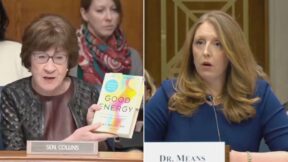
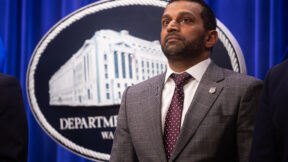
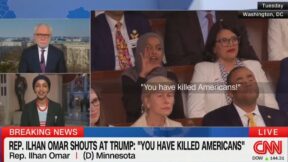
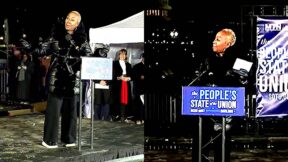
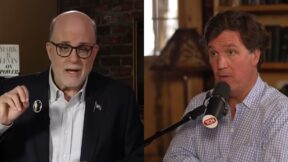

Comments
↓ Scroll down for comments ↓